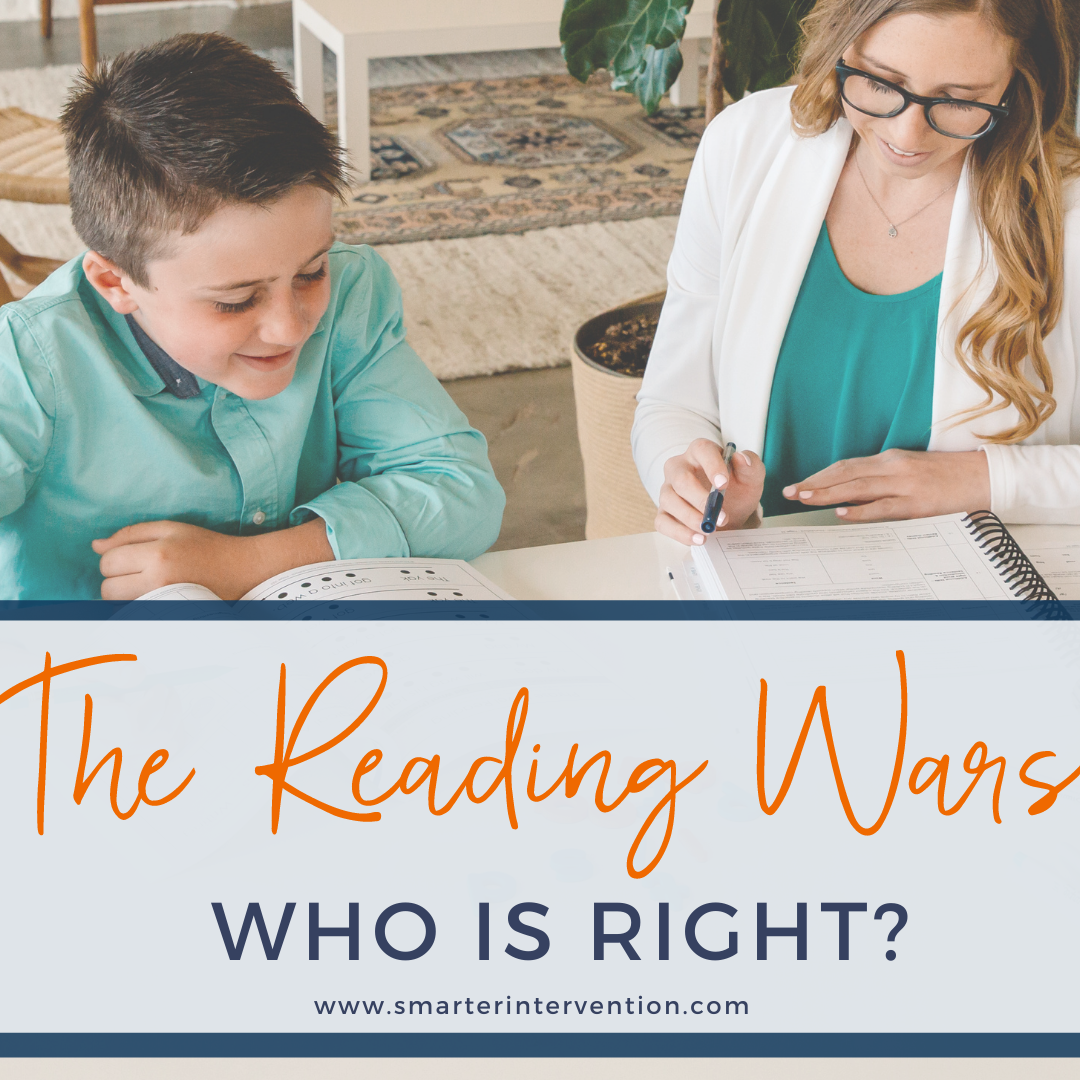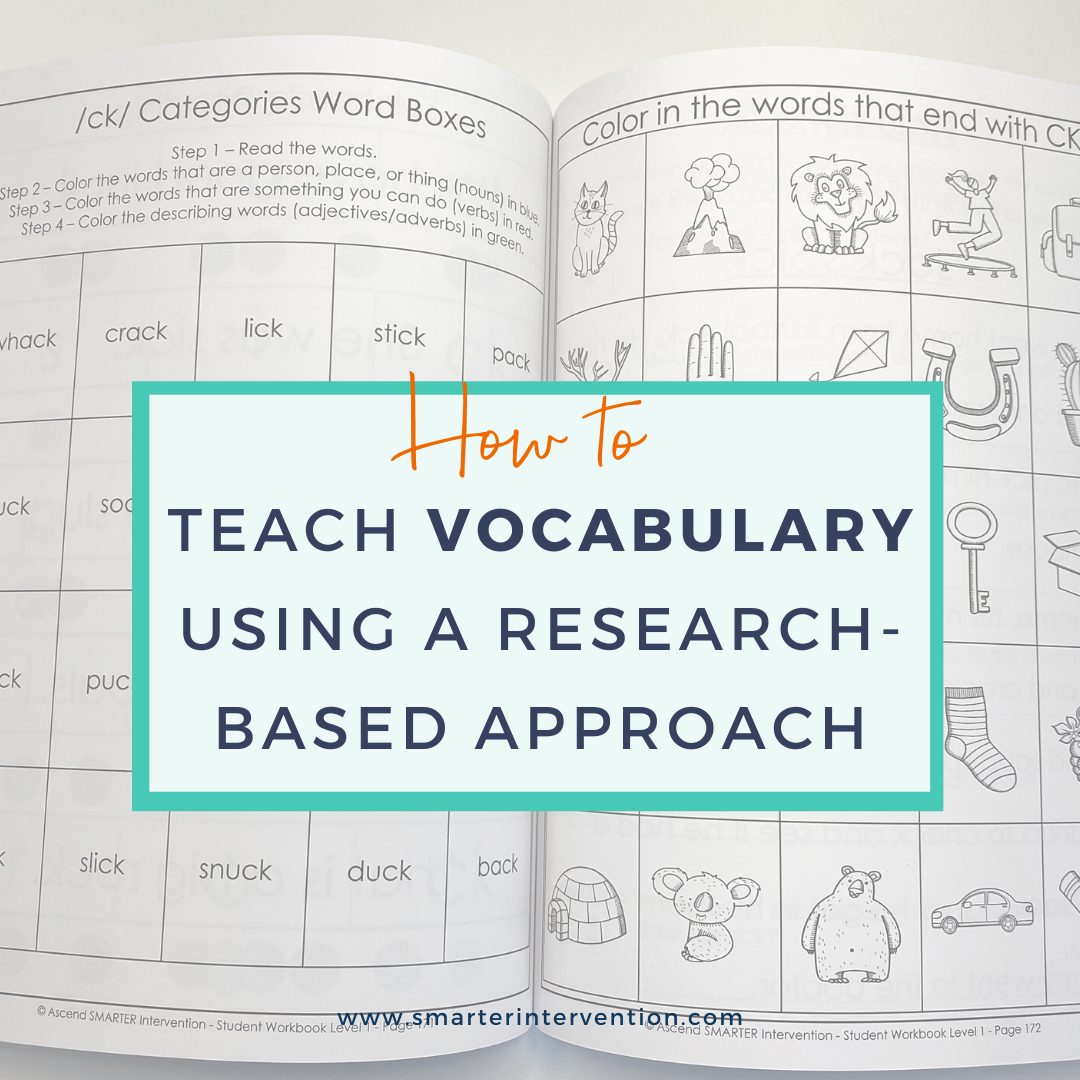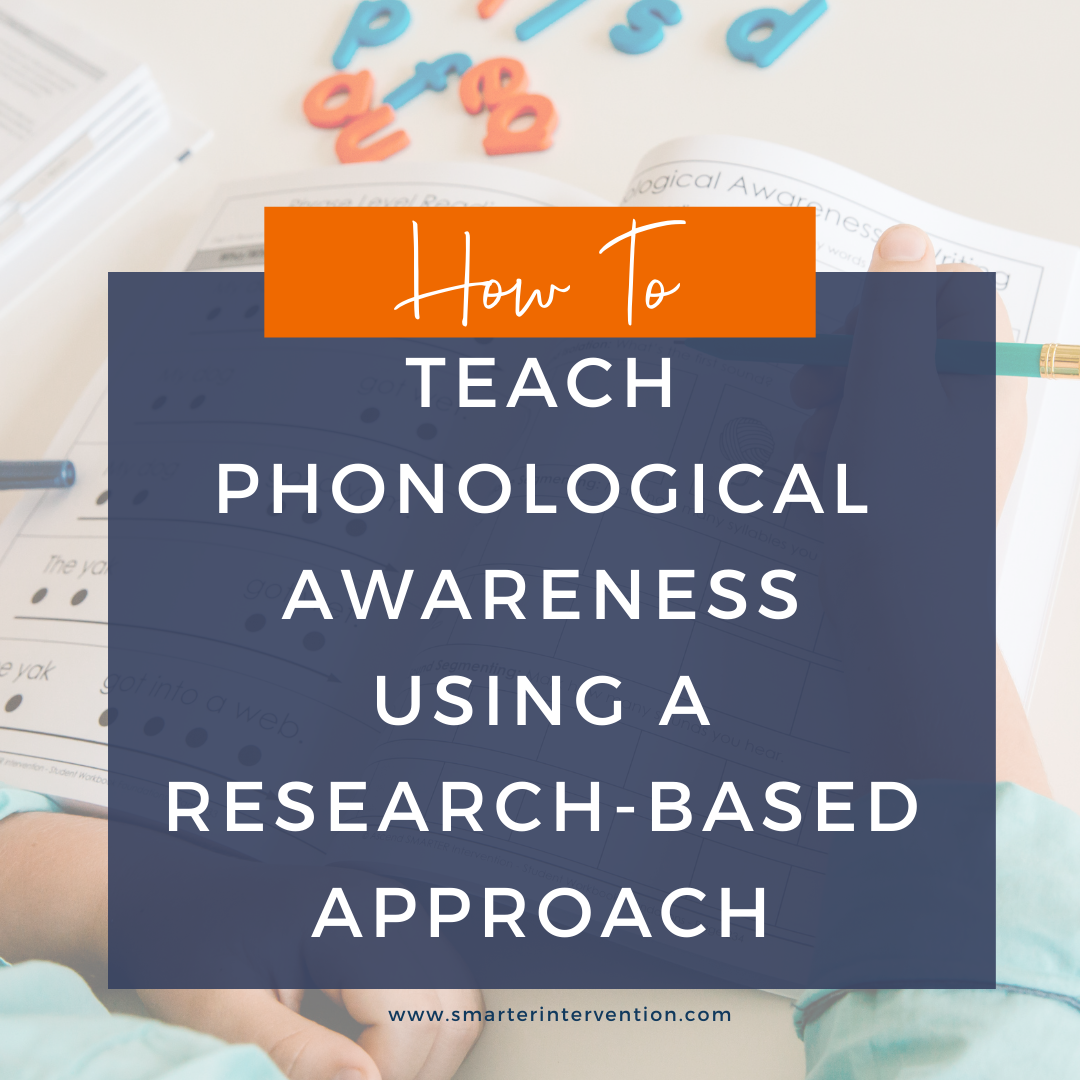Science-based literacy resources and articles
for families, educators and schools
Search by Category:
Categories
- Advocacy
- Business
- Comprehension
- Data Tracking
- Differentiation
- Dyslexia
- Evaluation and Assessment
- Executive Functioning
- Games & Activities
- Helping My Child At Home
- IEP/504 Plan
- Lesson Planning
- Math
- Online Intervention
- Organization
- Parents
- Phonics
- Phonological Awareness
- Reading Fluency
- Research
- SLP
- Spelling
- Vocabulary
- Writing
Reading Is Hard - Understanding the Bases of Literacy
Over the last few decades, there has been a lot of research done that helps us understand the brain, how we learn to read, and how we, as educators, can best teach reading. This movement is known as the Science of Reading.
This research has helped us recognize the necessary components of a reading & writing lesson, but, it can feel like a lot to dig through! In this blog, we discuss a few of the common research models and explain how they overlap to support truly effective reading (and writing!) instruction.
Instead of saying, "The research says..."
How many times have you heard someone (or yourself) say, "but the research says [insert an excerpt from an article here]" to validate an approach or strategy?
We get this, it's entirely well-intentioned and honestly good in many ways BUT there's a better way to validate our approach and strategy in our literacy instruction.
Instead of using "the research says…" we should be using our own experiences, our own students, and our data to be driving us. Keep reading to learn more.
The Reading Wars - Who is Right?
Raise your hand if you’ve ever heard of the reading wars.
This “battle” has been a long-standing argument between whole-language and phonics-based instruction. Over the last few decades (as more research has been done as a part of the Science of Reading movement), we have seen the pendulum swing back and forth and back again between these two reading approaches.
So… how do we know which is "right?" Keep reading to learn more about these two approaches and which is a fit for your students.
How to Use SOR to Build Students’ Comprehension Skills
In order to be a successful reader, students have to be able to understand what they are reading - not just sound out the words. Keep reading to learn how to use SOR to support students that struggle with comprehension.
How to Support On Grade Level Students (and above) Using the Science of Reading
Today we are jumping in and discussing how SOR strategies can support students who read on (or above) grade level.
Now, if you are working as a reading interventionist or SPED teacher, you may not see these students often as they don’t appear to need a lot of additional support when it comes to reading. This doesn’t mean, however, that there aren’t ways we can support these children to help them unlock their highest potential. Keep reading to learn how SOR strategies can support these students!
How to Support Struggling Readers Based on the Science of Reading
In a 2019 study conducted by the National Center for Education Statistics, it was determined that over 66% of 4th graders were not reading at a proficient level. Part of this is because of the gap that exists between research-based practices and what’s being implemented in the classroom. Unfortunately many large curriculum publishers adopted by schools were not staying current with the ever-expanding body of research on the cognitive development of students.
In order to close this gap, we need to implement practices in the classroom that align with the Science of Reading. Check out this blog for ideas that you can use to support your students!
How to Get the Most Out of Your Literacy Lessons
Have you ever thought to yourself - “How in the world am I EVER going to fit everything into my lessons?!” or maybe, “How can I better support my students?”
We certainly have!
The great news - we can actually make our interventions lessons MORE effective WITHOUT adding a ton of additional time. Keep reading to learn how!
How to Teach Paragraph Writing using a Research-Based Approach
Paragraph writing can feel like a BIG skill - both to teach & to learn! That’s why today, we are breaking down how we can use a research-based framework to make paragraph writing & paragraph writing instruction easier! There’s even a free resource further down for you to use in your paragraph writing instruction!
How to Teach Sentence Level Writing using a Research-Based Approach
Discover the key steps to teaching sentence-level writing effectively! Explore the research-based approach, systematic instruction, multisensory techniques, and targeted differentiation for enhanced learning outcomes. Elevate your students' writing skills effortlessly!
How to Teach Spelling using a Research-Based Approach
Discover the essential steps for effective spelling instruction in reading intervention programs. Learn about systematic, multisensory, and research-based approaches to teaching spelling. Explore targeted instruction and explicit techniques for improving phonological awareness and vocabulary skills.
How to Teach Reading Comprehension using a Research-Based Approach
Now if you’re like us and you’re obsessed with the science of reading, you may already know that there is a very systematic and structure in which you can teach phonics to help give struggling and beginning readers the tools they need to be successful (and hey - no shame if not, you can check out our phonics blog too). But, did you know there is also really clear set of reading comprehension skills that students need to be successful comprehenders?!
How to Teach Reading Fluency using a Research-Based Approach
When we think about reading intervention, reading fluency is definitely one of the first things that come to mind. Today, we are breaking down exactly what reading fluency is and the ACTUAL skills we should be targeting.
How to Teach Vocabulary using a Research-Based Approach
When I started out in reading intervention - the thought of teaching vocabulary terrified me. Maybe it was because I wasn’t sure how much my students were actually struggling with it, I wasn’t sure how to assess it, I wasn’t sure how much of it fell on me to teach, maybe it was because I thought it was just morphology, or - maybe it was because I still remember how much I hated memorizing hundreds of definitions & word origins from when I was in school.
Whatever it was - I dreaded vocabulary because it felt overwhelming and the way I was taught when I was a student (find the part of speech, word origin, and definition) never seemed to be helpful - just tedious.
That is until I learned what vocabulary instruction should actually look like and why it is so important. Today - we are going to break that down.
How to Teach Phonological Awareness using a Research-Based Approach
First things first, what is phonological awareness?
We’re so glad you asked, at the simplest level - it’s understanding the sounds of our language. It includes skills that we need to break words up into individual sounds and blend sounds together in order to “sound words out.” Phonological awareness DOES NOT require any knowledge of letters. Students could complete phonological awareness drills completely in the dark (meaning they don’t need to be reading or recognizing letters at all). The number of sounds in words and letters in words are not always the same!
Implementing Effective Literacy Intervention Lessons
Learn the keys to effective literacy intervention implementation likened to driving a car: data fuels the journey, lesson design provides navigation, and execution is akin to driving. Adaptability is crucial, akin to navigating roadblocks. Stay true to research-based principles.
The Reason 66% of Students Aren't Reading on Grade Level
When we discussed this statistic with the team - it got heated. If you know us at all, then you know that we believe every child deserves success and the fact that two-thirds of them are not able to access grade-level materials is gut-wrenching. We did some digging and realized that the reason that 66% of 4th-grade students are not reading at grade level is that…
How Many Students are Actually Reading Below Grade Level?!
If you know us well you know we LOVE statistics and data (if you‘re a data nerd too, you can sit with us - and if you’re not, that’s all good too because we’ve got you covered!!!)
We were reviewing the statistics that were pushed out by the US Department of Education in 2019 reviewing the National Report Card as it pertains to students and their ability to read at a proficient level by the time they are in the 4th grade.
And if you know these studies, the statistics are shocking. Keep reading to learn how many students are ACTUALLY below grade level when it comes to reading (the number may surprise you!) and to see how we can reverse this trajectory.
Where Do Students Need Explicit Instruction?
Students struggle for different reasons and in different capacities. In order to truly support our struggling readers, we must not only understand why students are struggling but also -
Where are students struggling to read specifically?
Which specific areas are causing students to be ineffective readers? Because the bottom line is if we are trying to support struggling readers, we need to stop applying one-size-fits-all approaches and we need to know what type of support is needed to get our struggling readers on track. Keep reading to learn more!



















